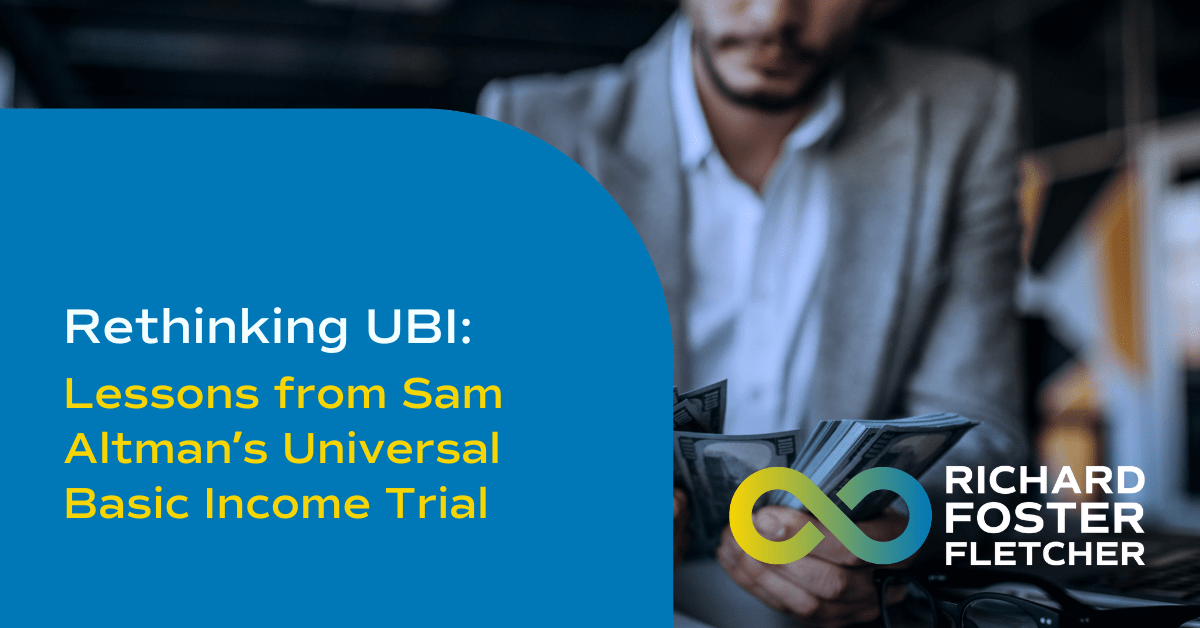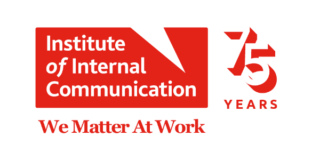
Rethinking UBI: Lessons from Sam Altman’s Trial and Global Implications

Tech Companies and Their Motivations for Supporting UBI
The growing interest of tech companies, particularly those leading the charge in AI, like Sam Altman’s OpenAI, in Universal Basic Income (UBI) initiatives, is not just a gesture of goodwill; it is deeply rooted in strategic interests. As AI and automation technologies advance, they are predicted to displace millions of jobs across various industries, fundamentally altering the economic landscape. In this context, tech companies view UBI as a potential buffer to the social and economic turmoil that could result from widespread job losses. By championing UBI, these companies position themselves as socially responsible, proactively addressing the challenges their technologies create.
This support for UBI serves multiple purposes. Firstly, it helps tech companies manage their public image, presenting them as empathetic entities concerned with the broader implications of their innovations. In an era of increasing scrutiny over the role of tech giants in exacerbating income inequality and job insecurity, this narrative is vital. UBI allows these companies to frame themselves as part of the solution rather than the problem, mitigating potential backlash.
Beyond public relations, there is a clear business rationale for supporting UBI. A guaranteed basic income ensures that consumers have the financial means to continue purchasing goods and services, even as the traditional job market contracts. For companies like OpenAI, whose business models rely on sustained consumer engagement with AI-driven products, maintaining a financially stable consumer base is crucial for long-term profitability. UBI, in this sense, is not just a safety net for society but also a mechanism to safeguard and potentially enhance market demand in a rapidly changing economy.
Moreover, by leading the UBI movement, tech companies can exert influence over the design and implementation of these programmes. This involvement allows them to shape policies in ways that align with their corporate interests, potentially skewing UBI frameworks to favour the tech industry’s long-term objectives. For instance, tech companies could push for UBI models that prioritise sectors or demographics that are most beneficial to their market strategies, further entrenching their influence over global economic trends.
Lessons from Sam Altman’s UBI Trials
Sam Altman’s three-year Universal Basic Income (UBI) trial, the largest of its kind in the United States, provided valuable insights into how a guaranteed income might affect the lives of low-income individuals. The trial, which involved 3,000 participants receiving either $1,000 per month or $50 per month as a control, revealed several key outcomes.
Firstly, the additional income allowed recipients to make more deliberate choices regarding their employment. With a basic financial safety net, many participants felt empowered to seek jobs that were more fulfilling, even if they were not necessarily higher-paying. This suggests that UBI can provide individuals with the freedom to prioritise job satisfaction over financial necessity, a significant shift from the usual pressure to accept any available work regardless of personal fulfilment.
However, while the guaranteed income did improve financial stability and provided more flexibility in job choices, it did not significantly enhance access to healthcare or improve overall job quality. The study showed that participants used the money for essential needs, but broader systemic barriers—such as access to healthcare and long-term economic mobility—remained largely unaddressed.
Furthermore, contrary to some expectations, the trial did not significantly boost innovation or entrepreneurship on a broad scale. Although there were increases in entrepreneurial activities among specific groups, such as Black recipients and women, the overall effect on starting new businesses or pursuing innovative projects was limited. This indicates that while UBI can provide a foundation of financial security, it may need to be supplemented with other forms of support, such as access to capital and business training, to significantly boost entrepreneurship across the board.
Despite these mixed outcomes, Altman continues to advocate for UBI as a necessary adaptation to the economic disruptions caused by AI and automation. He argues that as technology progresses and traditional jobs diminish, a guaranteed income will become essential to maintaining economic stability and consumer demand. The trial underscores the potential of UBI to offer greater job flexibility and support well-being but also highlights the need for comprehensive policies that address systemic issues alongside providing a basic income.
Altman’s Motivation for the Study
Delving deeper into Sam Altman’s motivations for supporting UBI, it becomes clear that his interest likely stems from a recognition of the disruptive power of the very technologies his company develops. Altman, anticipating that AI and automation could render large segments of the workforce obsolete, appears to be pre-emptively seeking solutions to the economic and social fallout. By funding and promoting UBI, he might be attempting to create a safety net that mitigates the negative impacts of AI, ensuring that the technology can continue to advance without causing widespread societal instability.
However, it’s important to consider whether Altman’s motivations are entirely altruistic. There is a strategic element in positioning UBI as a solution that aligns with the interests of tech companies. A stable, income-secure population would continue to be consumers of the products and services offered by these companies, making UBI not just a social policy, but also a business strategy.
Private vs Public Studies of UBI
The credibility of Altman’s UBI trial should be scrutinised, especially when compared to publicly funded or independently conducted studies. Private studies, such as those funded by Altman, often garner significant media attention, partly due to the celebrity status of the individuals involved. However, this focus on private studies can overshadow the findings of more objective, publicly funded research, which may offer a broader perspective on the potential benefits and drawbacks of UBI.
It is crucial to approach private studies with a degree of scepticism, recognising the potential for bias in how results are presented. While Altman’s study has contributed valuable data to the UBI debate, it should be considered alongside other research that might provide a more balanced view of UBI’s effectiveness.
Implications for Workers in Developing Nations
The global impact of AI on employment is profound, particularly for workers in developing nations. Freelancers, copywriters, designers, and translators in countries like Bangladesh face significant threats to their livelihoods as AI increasingly takes over these roles. The critical question remains: who will fund UBI for these workers? U.S. tech companies are unlikely to extend financial support globally, leaving developing nations without a safety net as traditional job markets shrink. Without addressing these disparities, UBI could exacerbate global inequality rather than alleviate it. The lack of a global framework for UBI distribution risks deepening economic divides, where developed nations benefit at the expense of those still developing.
Innovation and the Human Condition
Another point of reflection that the feedback raised is the broader question of whether the innovations driven by UBI, and by extension AI, are truly advancing the human condition or merely providing greater convenience. UBI has the potential to free individuals from the economic pressures that often drive innovation, allowing them to pursue creative endeavours. However, there is a risk that these innovations could be shallow, focusing on enhancing comfort and convenience rather than addressing more profound societal issues.
This raises important questions about the direction of human progress. Are we innovating to solve real problems, or are we simply refining the art of convenience? The challenge for policymakers and innovators alike is to ensure that UBI, if implemented, encourages meaningful advancements that contribute to a deeper understanding and improvement of the human condition, rather than just superficial changes.
Dependence on Profitable Tech Companies
While UBI can provide immediate financial relief, its long-term sustainability depends heavily on the profitability of tech companies willing to fund it. If a tech company paying UBI to thousands or millions of people were to fail, it would create a national crisis. Governments might feel compelled to prop up these companies, stifling competition and innovation from startups and challengers. This dependency could lead to a concentration of power and wealth, undermining market dynamics and economic diversity. The potential for tech giants to dictate terms on who receives UBI and under what conditions is a significant risk, as it places substantial power in the hands of a few, potentially leading to economic and social inequalities on a global scale.
Encouraging Risk-Taking and Innovation
For any country to maintain its standard of living or advance from developing to developed status, it needs an environment that encourages risk-taking and innovation. Sweden provides a relevant example. Sweden’s comprehensive social safety nets, including free healthcare, education, and support for entrepreneurs, create a conducive environment for innovation. In fact, Sweden boasts one of the highest rates of millionaires per capita, a testament to its supportive ecosystem for risk-taking and innovation. As of recent statistics, Sweden has approximately 3.7% of its population classified as millionaires, higher than many other countries. This success is attributed to their policies that lower the risks associated with entrepreneurship and provide ample support for new ventures.
Sweden’s innovation policies include substantial government funding for research and development, tax incentives for startups, and public-private partnerships to drive technological advancements. The Swedish Innovation Agency, Vinnova, plays a crucial role by funding and supporting projects that aim to solve societal challenges through innovation. Additionally, Sweden’s education system fosters creativity and critical thinking from an early age, ensuring a steady pipeline of innovative thinkers.
Challenges for Developing Countries
In contrast to advanced economies, many developing countries still struggle to cross the chasm from low-skill manufacturing and tourism to high-tech innovation. Cutting-edge innovation is crucial for these countries to build on their successes in manufacturing and prepare for the inevitable wage increases that accompany economic growth. Successful transitions to innovation-led economies are demonstrated by countries such as South Korea and Israel, which have managed to channel profits and wages into thriving entrepreneurial ecosystems.
However, other nations have found it challenging to follow this path. For instance, while the BRICS countries were once touted as promising contenders for advanced economic status, Brazil and South Africa have not emerged as the innovation powerhouses many expected. Brazil, for example, faces challenges such as bureaucratic red tape and limited access to funding, which stifles entrepreneurial efforts. Similarly, South Africa struggles with high unemployment rates and socio-economic inequalities that hinder its ability to foster a robust innovation environment.
When I spoke with ministers from the government of Tunisia earlier this year, they were acutely aware of the opportunities AI could bring but recognised that these opportunities could only be realised if channelled into innovation. Consequently, they are launching a new AI school in English, aiming to equip their workforce with the skills necessary to compete globally.
Innovation as a Path to Global Economic Equity
While Universal Basic Income (UBI) may provide short-term relief, long-term economic equity requires creating opportunities for innovation, especially in developing nations. By focusing on building environments that encourage entrepreneurship, countries can foster sustainable economic growth. Innovation-driven policies, such as access to education, technological infrastructure, and financial support for startups, are crucial for enabling citizens to contribute meaningfully to their economies. Unlike UBI, which may inadvertently reinforce dependency, a focus on innovation empowers individuals to create value, drive change, and compete globally. This approach is particularly vital for developing nations, which need to move beyond reliance on low-skill industries towards knowledge-based economies that can sustain higher wages and living standards.
The Risks of Centralised Control Over UBI Distribution
The power dynamics inherent in UBI distribution are concerning, particularly when controlled by a few tech giants or centralised governments. If these entities dictate who receives UBI, they could exert undue influence over societal structures, potentially marginalising certain groups or regions. This concentration of power risks creating a new form of economic inequality, where access to basic income is contingent on the interests of those who hold the purse strings. To avoid this, any discussion of UBI must include robust frameworks that ensure transparent, equitable, and democratic governance over its distribution. Such frameworks should consider the potential for UBI to become a tool of soft power, where those controlling the funds can shape social and economic policies in ways that benefit them, rather than the broader population.
The Potential Impact of Retailer-Specific UBI
An emerging and deeply concerning possibility is the potential for UBI to be distributed in ways that favour specific retailers, further concentrating economic power. Imagine a scenario where Amazon, a tech giant already investing in AI and companies like Anthropic, offers a choice: receive $1,000 in cash as UBI or $1,250 in Amazon credit. Such an offer would be enticing for many, effectively locking a significant portion of the population into the Amazon ecosystem. The implications for other retailers would be profound, as they could face severe competitive disadvantages if UBI recipients overwhelmingly choose Amazon credit over cash.
This type of retailer-specific UBI could distort market competition, leading to a monopolistic environment where a few large companies dominate entire sectors. Smaller businesses, unable to match such offers, would struggle to survive, reducing consumer choice and stifling innovation across the retail industry. Moreover, this could exacerbate economic inequalities, as wealth becomes increasingly concentrated in the hands of a few dominant corporations. The broader economy could suffer as market diversity diminishes, innovation stalls, and the power dynamics between consumers and corporations shift dramatically in favour of the latter.
A Path Forward: Beyond UBI to Empowerment and Innovation
To truly harness the benefits of AI and UBI while fostering innovation, we need a conscious effort to create environments that support risk-taking and entrepreneurial ventures. This involves not just providing financial support but addressing systemic issues that hinder progress. UBI must be designed to fuel innovation and economic growth globally, ensuring that the benefits of technological advancements are shared equitably. By promoting policies that encourage entrepreneurship and provide robust social safety nets, we can create a sustainable future where both developed and developing nations can thrive.
A well-structured UBI could indeed fuel innovation if it creates a safety net that allows individuals to take risks without the fear of complete financial ruin. By ensuring that basic needs are met, UBI could free people to pursue creative and entrepreneurial endeavours, much like Sweden’s supportive ecosystem. However, this would require a global perspective on UBI, ensuring that the benefits of technological advancements do not remain confined to wealthy nations but are shared equitably to foster worldwide innovation and growth. This holistic approach would not only address immediate financial needs but also build a foundation for sustainable development and inclusive economic progress. With this in mind, a UBI ‘safety net’ is just a small part of much wider
initiatives to create an environment where those at risk of job displacement are empowered to create new initiatives, and companies and develop their ideas without fear of catastrophic failure. Without this, and as observed in Sam Altman’s trial, it risks becoming a band-aid over the deeper flaws of our capitalist system. Simply providing a financial buffer to people does not necessarily enable people to pursue new business ideas or create meaningful change.
The trial demonstrated that while UBI can provide short-term financial relief, it does not address the systemic barriers that prevent individuals from engaging in entrepreneurship, innovation, or skills development. A world dominated by financial handouts, without a focus on empowerment and opportunity, is not one that fosters true progress. It would create millions of disempowered individuals at the mercy of a few powerful entities that decide who gets what, all while systematically blocking challenges to the status quo. This article is not an argument for or against UBI but rather a cautionary exploration of the risks it poses in concentrating even more power and control in the hands of those who would administer it. UBI, as it currently stands, is unlikely to support people equally across the globe and may instead serve as a road to nowhere if not paired with significant investments in education, innovation, and systemic reform.
Currently, we have not yet experienced mass job displacement due to AI, which means now is the critical time to focus on empowering, reskilling, and supporting those who are employed. Proactive measures can be taken to enable them to innovate and adapt to future changes. However, this approach challenges the traditional employer-employee relationship, necessitating the creation of incentives and reward systems that allow companies to benefit from supporting their employees in innovating in ways that may not be directly related to their specific job roles or the core business of the company. To build a future where innovation and empowerment are truly accessible, we must look beyond UBI and consider a comprehensive strategy that includes the following initiatives:
- Tax Incentives: Governments should offer tax breaks to companies that are actively involved in approved innovation, skills development, or community engagement initiatives. These
incentives would encourage businesses to invest in their employees and their communities, fostering an environment where innovation can thrive. - Subsidies and Grants: Financial support should be provided to companies that implement creative work-time policies, such as Innovation Time Off (ITO) or skills enhancement programs. These subsidies and grants would help offset the costs associated with these initiatives, making it easier for companies to adopt forward-thinking practices that benefit both their employees and society at large.
- Public Recognition Programs: Establishing schemes to publicly acknowledge companies that excel in employee development, innovation, and community involvement can create a culture of excellence. By celebrating these achievements, we can inspire other companies to follow suit and prioritise the well-being and growth of their employees.
- Government Preferences: Governments should prioritise contracts for companies committed to progressive employment practices and innovation programs. By rewarding companies that invest in their workforce and contribute to the public good, governments can encourage more businesses to adopt these practices.
- Regulatory Streamlining: Simplifying regulations for companies investing in employee-driven innovation and community projects would reduce the administrative burden on these businesses. By making it easier for companies to participate in such initiatives, we can encourage greater involvement and foster a more dynamic and innovative economy.
In addition to these measures, significant investment in adult education is crucial. Providing individuals with the skills and knowledge they need to succeed in a rapidly changing economy is essential for ensuring that UBI, if implemented, does not simply create a dependent population but empowers people to pursue new opportunities and contribute to society in meaningful ways.
Ultimately, a financial safety net alone is insufficient to address the challenges of the future. We must strive to create a world where individuals are not merely recipients of handouts but are empowered to shape their destinies. By combining UBI with investments in education, innovation, and systemic reform, we can build a more equitable and dynamic society—one that truly supports the growth and well-being of all its members.
Note of thanks
This article was made possible due to the support of members of the MKAI community who debated and challenged the original content to help shape and improve the arguments. I extend my deepest gratitude.
Further Reading:
Sam Altman’s UBI Trial and Its Results:
- The Register: Details on the outcomes of the UBI trial, including how recipients used the funds and the impact on job choices.
- URL: https://www.theregister.com/2024/07/23/sam_altman_basic_income/#
- Scott Santens’ Blog: Analysis of the trial’s impact on entrepreneurship and job quality
- URL: https://www.scottsantens.com/did-sam-altman-basicincome-experiment-succeed-or-fail-ubi/
- The Daily Hodl: Overview of how the UBI experiment affected participants’ labor participation.
- URL: https://dailyhodl.com/2024/08/12/sam-altman-fundeduniversal-basic-income-experiment-finds-recipients-of-freemoney-opt-out-of-work-heres-why/
Tech Companies’ Motivations for Supporting UBI:
- Notre Dame – Ethics at Work: Why Silicon Valley, including OpenAI, supports UBI as a strategic move to manage public perception and mitigate economic disruptions caused by AI.
- URL: https://ethicsatwork.nd.edu/resources/why-silicon-valleyis-embracing-universal-basic-income/
- Disrupt Magazine: Discusses how tech leaders view UBI as a buffer against AI-induced inequality and job loss.
- URL: https://disruptmagazine.com/ais-disruptive-future-spursubi-push-andrew-spira-and-tech-giants-advocate-foreconomic-safety-net/
Impact of AI on Employment in Developing Nations:
- International Monetary Fund: Article on the impact of AI on employment globally, including developing countries.
- URL: https://www.imf.org/en/Blogs/Articles/2024/01/14/ai-willtransform-the-global-economy-lets-make-sure-it-benefitshumanity
- Brookings Institution: Research on AI’s impact on developing nations and the potential role of UBI.
- URL: https://www.brookings.edu/articles/ai-in-the-global-southopportunities-and-challenges-towards-more-inclusivegovernance/
Sweden’s Innovation Ecosystem:
- Government of Sweden’s Official Site: Information on Sweden’s innovation policies and support systems.
- URL: https://www.government.se/government-policy/innovation/
- Vinnova (Swedish Innovation Agency): Details on Sweden’s approach to fostering innovation.
- URL: https://www.vinnova.se/en/
Challenges for Developing Countries in Crossing the Innovation Chasm:
- World Bank: Paper on economic challenges and innovation gaps in developing countries.
- URL: https://openknowledge.worldbank.org/entities/publication/24b7bf1e-efc8-588f-8aa5-efe5998373aa
- Boston Consulting Group: Analysis of innovation strategies in BRICS nations
- URL: https://www.bcg.com/publications/2024/bricsenlargement-and-shifting-world-order
To download this article as PDF, click here.
















